您们的需要 我们的专注
Your Needs Our Focus
财经快讯
-
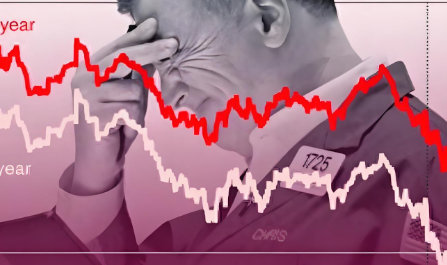 查看详情
查看详情資金湧入避風港!時隔半年,美債收益率跌破4%
上周,美國地區性銀行信貸風險引發市場震蕩,投資者大舉湧入國債避險。地區性銀行股指數創下自4月關稅引發市場混亂以來的最大跌幅。對利率政策敏感的2年期美債收益率跌破3.4%,10年期收益率最低觸及3.93%。 市場已完全消化美聯儲10月29日降息25個基點的預期。在股票和信貸市場估值高企的背景下,投資者正鎖定10年期4%的收益率作為安全配置。 避險屬性重獲驗證 這與4月份形成鮮明對比——當時特朗普推出關稅政策引發市場動蕩,一度引發全球投資者可能拋售美債的擔憂。在那段時期,美債曾與股票和美元同步下跌。 上周的債券漲勢讓人想起2023年3月矽谷銀行倒閉時的情景,當時2年期美債收益率在短時間內暴跌超過1個百分點。10年期美債收益率自4月以來僅少數幾次跌破4%。上周五該收益率一度降至3.93%,為4月7日以來最低。 據見聞此前文章寫道,美聯儲主席鮑威爾上周在講話中指出“就業下行的風險似乎有所增加”,招聘放緩,就業或進一步下降。 目前,市場普遍預期10月將降息25個基點,且在10月29日會議後,市場預期12月將再降息25個基點,到2026年年中前可能還有兩次降息。 美債收益率下行空間仍存? AmeriVet Securities美國利率交易和策略主管Gregory Faranello表示,10年期美債收益率"有跌破4%的空間,但情況需要從現在開始進一步惡化很多"。 摩根士丹利利率策略師團隊負責人Matthew Hornbach等人認為10年期收益率有進一步下行空間。該行此前在報告中寫道: 不過本周將公布一組關鍵政府數據。原定10月15日發布的9月消費者價格指數(CPI)將於周五公布。經濟學家預計核心CPI月率持平,整體CPI年率為3.1%,遠高於美聯儲2%的通脹目標。 風險提示及免責條款
2025-10-20 -
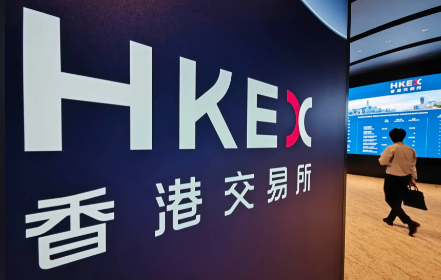 查看详情
查看详情香港財政司司長:超過200家企業正排隊等待在香港上市
“(IPO)非常強勁。” 近日,香港財政司司長陳茂波在接受公開采訪時表示,目前有超過200家企業正排隊等待在香港進行首次公開募股(IPO)。 陳茂波指出,這一趨勢背後的主要驅動力,是中國內地企業日益增長的全球化需求。 對於走向全球的內地企業而言,利用香港作為平臺來籌集資金和招攬人才,以幫助它們進行海外擴張,是一個非常好的商業選擇。 市場的熱烈反應印證了這一觀點。香港股市自去年底以來大幅反彈,基準的恒生指數在2025年已上漲29%,成為全球表現最佳的發達市場之一。這股漲勢得到了全球投資者的積極參與,據陳茂波透露,目前市場交易量的一半來自歐洲、美國、中東及亞洲其他地區的投資者,另一半則來自中國內地。 港股IPO持續火熱,三季度募資額創四年新高 香港的股票發行市場在2025年迎來了豐收年。 數據顯示,香港市場涵蓋IPO、定向增發和大規模股票交易在內的股權融資活動,在今年第三季度創下了四年多以來的最佳表現。僅這三個月的融資總額,便已超過2024年全年的水平。 市場的熱度重燃吸引了眾多重量級企業。 近期備受矚目的上市案例包括電池制造商寧德時代和中國礦業公司紫金黃金國際有限公司。這些大型企業的成功上市,進一步增強了市場對香港作為首選上市地的信心。 金融峰會成市場信心“試金石” 在市場活動升溫的背景下,外界正密切關註即將在下月由香港金融管理局(HKMA)主辦的全球銀行家峰會。此次峰會將成為衡量國際金融界對香港信心的重要指標。 陳茂波對此表示,目前峰會的反響“極其熱烈”,已有約100位首席執行官或董事長級別的高管計劃出席。 他將此次活動形容為“亞洲商界領袖不容錯過的盛會”。 風險提示及免責條款 市場有風險,投資需謹慎。本文不構成個人投資建議,也未考慮到個別用戶特殊的投資目標、財務狀況或需要。用戶應考慮本文中的任何意見、觀點或結論是否符合其特定狀況。據此投資,責任自負。
2025-10-17 -
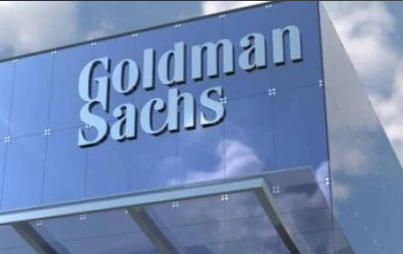 查看详情
查看详情當下,高盛客戶最關心的問題
10月16日,高盛最新研報稱,該行全球股票策略師Germaine Khong近期總結了交易臺最常見的討論議題。從美國科技股是否已處於泡沫區間,到中國、印度等亞洲市場的拐點判斷,投資者正試圖在高估值環境下尋找確定性。 針對亞洲市場,高盛團隊預計印度的盈利下調周期接近尾聲,越南被納入富時新興市場指數可能帶來約14億美元的被動資金流入,而韓國在公司治理立法方面的進展可能成為四季度的積極催化劑。 投資者最關註的核心問題是當前估值是否已達泡沫水平。 Peter Oppenheimer指出,當前市場確實存在一些與歷史泡沫相似的特征,包括絕對估值上升、市場集中度提高、龍頭公司資本密集度增加以及供應商融資的出現。但存在三個關鍵差異: 第二,回報率最高的龍頭公司擁有異常強勁的資產負債表; 高盛認為,科技板塊估值正在變得緊張,但尚未達到與歷史泡沫一致的水平。高盛建議投資者繼續關註多元化配置。 部分投資者預期美聯儲降息周期將催化資金從貨幣市場基金輪動至股市,但高盛預計家庭股票需求將由收入而非資產輪動提供資金。 中國市場:下一步看什麽? 近期討論主要圍繞中美關系、第十五個五年規劃及寬松預期展開。投資者也在詢問成長與價值風格輪動,以及三季度盈利預期。 印度:何時入場? 高盛策略團隊此前指出,扭轉印度市場表現不佳的因素包括:盈利周期逆轉、估值降低、有效的政策支持。 越南:富時指數升級的影響 高盛估計,指數再平衡可能帶來約14億美元的被動資金流入,但由於基準業績壓力,主動管理型基金大規模流入的可能性似乎不大。 對於韓國市場,高盛認為,四季度可能成為積極催化劑的事件包括公司治理立法的通過(強制註銷庫藏股、降低股息稅)。 風險提示及免責條款
2025-10-16 -
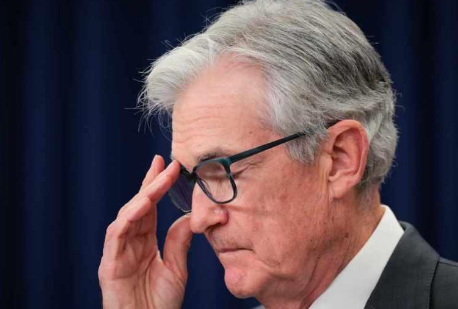 查看详情
查看详情鮑威爾的balance:不過度降息,但會停止縮表
在費城舉行的全美商業經濟協會年會上,鮑威爾在進入本月FOMC靜默期前發表了講話,語氣相對克制。在降息和通脹預期交織的背景下,鮑威爾正在小心翼翼地調整貨幣政策,試圖在多個目標之間找到平衡。 過去兩年,美聯儲以控制通脹為主要任務,維持高利率並持續量化緊縮,來保持整體的緊縮基調。但最近的跡象顯示,這一緊縮周期可能接近尾聲,政策開始向“有節制的寬松”方向轉變:一方面考慮有節制地降息,避免通脹預期擡頭,另一方面也在通過資產負債表操作來避免流動性緊張。 鮑威爾明確指出,雖然政府關門導致部分經濟數據缺失,但現有信息顯示,就業和通脹的趨勢與一個月前差別不大,經濟增長甚至略強於預期。不過,勞動力市場也出現了一些疲軟跡象,比如招聘放緩、職位空缺減少,雖然失業率仍處於低位,但未來可能面臨上行壓力。鮑威爾坦言,“就業的下行風險似乎有所增加”,這句話引發了市場的廣泛關註,也被認為是暗示本月將再次降息25個基點。 但美聯儲仍將保持謹慎。鮑威爾強調,任何政策選擇都存在風險:降息太快可能導致通脹反彈,太慢則可能影響就業。最新的利率預測圖顯示,今年可能會有一到兩次降息,但內部意見並不一致:有些官員希望更快行動,有些則擔心關稅和供應鏈問題帶來的價格壓力,還有一些人主張“降一次就夠”。這種分歧正體現了鮑威爾在政策上的“走鋼絲”。 與此同時,另一項政策也在悄然推進。鮑威爾暗示,美聯儲可能很快就會停止縮表。雖然銀行體系的準備金仍然充足,但回購利率上升等跡象表明市場流動性正在收緊。他表示,美聯儲將謹慎操作,避免重演2019年回購市場的劇烈波動。當時隔夜利率一度飆升至10%,引發市場恐慌。停止縮表不僅是技術性調整,更是為了在不依賴過度降息的情況下,通過改善流動性來穩定市場。 在資產負債表方面,鮑威爾花了不少時間解釋準備金制度的重要性。面對部分人士對於為準備金支付利息的批評,他回應說,如果美聯儲無法繼續支付準備金利息,可能會失去對利率的控制,甚至不得不大量拋售國債和抵押貸款支持證券,從而推高市場利率,影響金融穩定。這不僅是技術問題,更關系到貨幣政策的有效性。他的解釋也回應了近期國會對這一機制的質疑,強調這是維持市場穩定的關鍵工具。 關於通脹,目前核心PCE指標仍在2.9%左右,略高於年初,主要受到關稅影響下商品價格上漲的推動,而住房相關服務的通脹則在下降。鮑威爾提醒大家,在政府數據缺失的情況下,替代數據並不能完全替代官方統計,因此對價格走勢的判斷需要更加謹慎。他也避免對黃金價格發表評論,以免引導市場預期。 在市場解讀方面,《華爾街日報》的記者Nick Timiraos指出,鮑威爾的講話表明美聯儲仍在考慮降息,但會根據數據和風險進行調整。這種策略既是對當前經濟狀況的回應,也是對市場預期的管理。鮑威爾強調,政策不會照搬過去的路徑,而是根據每次會議的情況做出決定。 這場政策上的“平衡術”,不僅體現在利率和資產負債表之間,也涉及到政策溝通和政治邊界。鮑威爾重申,美聯儲不會介入政治事務,比如移民政策,但他也承認,勞動力增長放緩和入境人數減少可能影響就業市場。他還引用諾貝爾經濟學獎得主Robert Solow的話,提醒大家不要過度解讀人工智能對短期生產率的影響。 未來幾個月,美聯儲在有節制降息和停止縮表上的雙軌操作將成為市場關註的焦點。對投資者來說,理解這種政策平衡,比單純押註某一項政策更為重要。鮑威爾的策略,既是對經濟現實的回應,也是對市場心理的調節。 對於市場而言,長端利率在這種“平衡下”會顯得較為粘滯,這似乎也意味著美元指數很難快速下滑,甚至可能在較為慵懶的長端利率環境下顯得易上難下。短端利率則可能因為類量化寬松的操作而出現下行,但卻可能因為現實中的流動性間歇緊張(否則美聯儲也不會考慮類量化寬松政策)而出現反抽。在這種情況下,市場最佳的選擇,反而是在流動性緊張的時候買入長債,因為這時候反而是美聯儲最需要表達寬松立場的時刻。 風險提示及免責條款 市場有風險,投資需謹慎。本文不構成個人投資建議,也未考慮到個別用戶特殊的投資目標、財務狀況或需要。用戶應考慮本文中的任何意見、觀點或結論是否符合其特定狀況。據此投資,責任自負。
2025-10-15 -
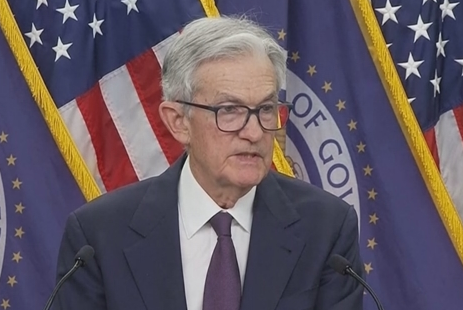 查看详情
查看详情敏感時刻,今晚鮑威爾又要登場了,這是他在美聯儲決議後首度發聲
美聯儲在9月會議上將利率下調25個基點至4.00%-4.25%區間,決定幾乎獲得一致通過,僅新任理事Stephen Miran持異議,主張降息50個基點。 此次講話還面臨政府停擺帶來的數據缺失挑戰。自10月1日開始的政府停擺導致關鍵的就業和通脹報告暫停發布,這讓美聯儲失去了重要的政策指引。投資者期待鮑威爾解釋在缺乏關鍵數據的情況下,美聯儲將如何制定政策。 美聯儲的雙重使命要求其追求充分就業和價格穩定,但當前面臨相互競爭的擔憂。勞動力市場降溫的跡象表明就業方面存在潛在脆弱性,而通脹率在近五年來一直頑固地高於央行2%的目標。這使得激進降息的理由變得復雜。 此次講話時機特殊,不僅缺乏新的經濟數據,而且美聯儲將在本周末進入會前靜默期。根據芝商所FedWatch工具顯示,投資者目前認為10月會議再次降息的概率高達97%。 風險提示及免責條款
2025-10-14 -
 查看详情
查看详情智元機器人赴港上市再起波瀾
據市場消息稱,智元機器人正籌備明年於香港IPO,目標估值高達400–500億港元(約 51–64億美元),由中金公司、中信證券和摩根士丹利共同負責承銷。 參與此次IPO的其中一家投行向信風確認該消息屬實。 對此,智元機器人再次予以否認。 早在今年7月便有媒體報道稱,智元機器人赴港上市的目標不變。 彼時智元機器人同樣向信風回應稱,相關信息不實,暫無赴港上市明確計劃。 智元機器人的境外資本化備受關註的核心原因在於,智元機器人才於近期拿下上緯新材(688585.SH)的控制權,市場普遍預期改朝換代的上緯新材會成為智元機器人未來的上市平臺,進而躋身A股市場“人形機器人第一股”。 盡管智元機器人及上緯新材再三強調,未來36個月內不存在借殼上市的安排,但依舊阻擋不了二級市場的熱情,上緯新材股價從今年6月末迄今漲幅超過16倍。 由於股價存在異常波動,上緯新材自今年9月26日開始停牌核查,直至10月13日復牌。 10月10日晚,智元機器人發布停牌核查公告,再度表示“未來36個月內智元創新不存在通過上市公司借殼上市的計劃或安排。” 不僅如此,該公告還對股價變動做出了風險提示:“目前,公司基本面未發生重大變化,但近期公司股票交易價格已嚴重脫離公司目前的基本面情況,公司股價存在隨時快速下跌的風險,投資者參與交易可能面臨較大的市場風險。” 智元機器人究竟會采取何種方式登陸資本市場,仍待進一步觀察。 風險提示及免責條款 市場有風險,投資需謹慎。本文不構成個人投資建議,也未考慮到個別用戶特殊的投資目標、財務狀況或需要。用戶應考慮本文中的任何意見、觀點或結論是否符合其特定狀況。據此投資,責任自負。
2025-10-11 -
 查看详情
查看详情香港版“coinbase”?香港最大持牌加密貨幣交易所考慮港股IPO
HashKey在香港和新加坡運營多元化業務,包括交易平臺、風險投資和資產管理服務。作為香港最大的持牌加密貨幣交易所運營商,該公司受益於香港去年推出的虛擬資產監管框架。 上述知情人士向媒體表示,目前相關討論仍在進行中,估值和時間安排等細節可能會發生變化。HashKey的一位代表表示,公司目前沒有上市相關信息需要披露。 市場有風險,投資需謹慎。本文不構成個人投資建議,也未考慮到個別用戶特殊的投資目標、財務狀況或需要。用戶應考慮本文中的任何意見、觀點或結論是否符合其特定狀況。據此投資,責任自負。
2025-10-10 -
 查看详情
查看详情加入“AI泡沫”大論戰,高盛:還沒有泡沫!
近日,高盛分析師Peter Oppenheimer、Sharon Bell等在其最新研報中給出了明確的答案:盡管當前市場呈現出部分歷史性泡沫的特征,但我們尚未身處其中。高盛認為,與過往泡沫最大的不同在於,本輪科技股上漲主要由強勁的基本面和實實在在的盈利增長所驅動,而非純粹的投機狂熱。 然而,高盛強調了幾個關鍵區別。首先,科技板塊的價格上漲迄今為止有堅實的盈利增長作為支撐。其次,引領市場的龍頭企業擁有異常強大的資產負債表,這與以往高杠桿驅動的泡沫形成鮮明對比。最後,當前AI領域的競爭主要由少數幾家現有巨頭主導,而大多數泡沫通常在大量新進入者湧入、競爭格局混亂的時期形成。 估值拉升但未達泡沫水平 報告將美股科技股當前的“七巨頭”與歷史上的市場領導者進行比較。數據顯示,這七家公司的預期市盈率中位數約為27倍,遠低於2000年科技泡沫頂峰時期龍頭公司約52倍的水平。 從PEG比率(市盈率相對盈利增長率)來看,美國科技股當前水平仍低於1990年代末的泡沫高點。基於歷史收益的PEG比率顯示,科技泡沫頂峰時期該指標達到3.7倍,而目前僅為1.7倍。 盈利驅動而非投機推動 報告顯示,自2009年以來,全球科技行業的每股收益(EPS)增長已遠遠超過非科技行業,這一差距在金融危機後持續擴大。 而當前,盈利增長是支撐股價表現的關鍵支柱,這為市場的穩定性提供了更堅實的基礎。報告預計,2025科技股“七巨頭”的綜合凈資產收益率將達到46%,凈利潤率為29%,遠高於2000年科技泡沫時期主導公司16%的凈利潤率。 盡管整體基調偏向樂觀,高盛並未忽視市場潛藏的風險,特別是激增的資本支出和創紀錄的市場集中度。 關鍵區別在於融資方式。目前,科技巨頭的資本支出主要來自其充裕的自由現金流,而非大規模舉債。它們的資產負債表異常強健,現金儲備充足,凈負債率普遍為負。這與1990年代電信公司通過大量發行股票和債券來為投資提供資金的情況截然不同,從而降低了整個金融體系的系統性風險。 不過,高盛也同時在報告中提醒,近期科技公司的債務融資活動有所增加,這是一個值得關註的轉變。 高盛認為,這種高度集中的狀況“不可持續”,但指出這本身並不等同於泡沫。歷史上,主導市場的行業長期保持領先地位是常態。從19世紀初至今,金融、交通、能源和科技行業先後成為市場主導力量,每個時期都持續數十年。 報告最後,高盛總結稱,市場尚未進入全面的AI泡沫,但投資者不能掉以輕心。 面對高估值和高集中度的風險,高盛給投資者的核心建議是“多元化”,建議從以下幾個方面著手: 風格多元化: 隨著利率環境變化,傳統的“價值”與“成長”風格之間的界限開始模糊,為跨風格投資提供了更多機會。 科技行業內部多元化: 在關註現有巨頭的同時,也應尋找那些能利用當前資本支出熱潮、創造新產品和服務的下一波科技“超級明星”。 市場有風險,投資需謹慎。本文不構成個人投資建議,也未考慮到個別用戶特殊的投資目標、財務狀況或需要。用戶應考慮本文中的任何意見、觀點或結論是否符合其特定狀況。據此投資,責任自負。
2025-10-09 -
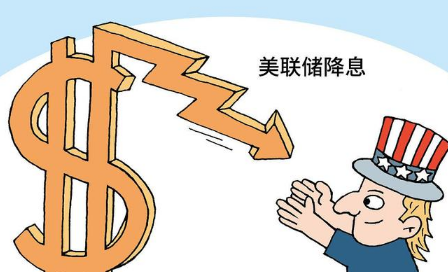 查看详情
查看详情市場認為10月降息“定了”,但一些美聯儲高官不這麽看
美聯儲與市場的觀點分歧正在擴大,一邊是認為10月再次降息勢在必行的投資者,另一邊則是部分對通脹保持警惕並呼籲謹慎行事的美聯儲官員。 本周一,多位地方聯儲主席密集發聲,反駁了“下個月降息已是板上釘釘”的看法。他們強調,即使決策者需要在防範過度緊縮與抗擊通脹之間取得平衡,也不應過快采取寬松政策。 這些官員擔憂的核心是居高不下的通脹。克利夫蘭聯儲主席Beth Hammack周一在法蘭克福表示,通脹趨勢正朝著“錯誤的方向”發展。聖路易斯聯儲主席Alberto Musalem也表達了類似觀點,認為決策者需要“謹慎行事”。 然而,市場似乎並未理會這些鷹派警告。根據聯邦基金期貨的交易數據,投資者和華爾街分析師仍然堅信寬松政策即將到來。根據CME FedWatch工具,約90%的投資者押註美聯儲在10月28-29日會議上降息25個基點,70%預期12月再次降息。 通脹擔憂成為鷹派表態主因 上周五發布的數據顯示,美國通脹仍然粘性較強。8月整體PCE通脹同比上升2.7%,核心PCE通脹上漲2.9%,均高於美聯儲2%的目標。 鷹派官員們普遍認為,在通脹明確回到2%的目標之前,任何過度寬松的舉措都為時過早。 聖路易斯聯儲主席Alberto Musalem周一表示,決策者應該“頂住”高於目標區間的通脹。 克利夫蘭聯儲主席Beth Hammack的觀點更為尖銳。她指出,美聯儲“辜負其使命”已經長達四年半之久,因為通脹一直高於目標。她表示,與去年降息時通脹趨勢向下不同,“過去一年,通脹基本處於橫盤狀態,一些組成部分甚至有所上升。” 在她看來,通脹要到2027年底才能回落至2%的目標,因此“需要維持限制性的政策立場”。 其他官員也表達了類似的謹慎。堪薩斯城聯儲主席Jeff Schmid上周表示,通脹仍然過高,而目前的政策只是“略微限制性”。芝加哥聯儲主席Austan Goolsbee則警告,不應僅僅因為就業數據放緩就“過度提前實施太多降息”。 就業下行風險引分歧 不過,這種謹慎立場並未獲得所有官員的認同,美聯儲內部分歧顯而易見。在最新的經濟預測中,有10名官員預計今年將降息三次,而9名官員則預計降息兩次或更少。 被認為更傾向於降息的官員們,主要理由是勞動力市場日益顯現的疲軟跡象。紐約聯儲主席John Williams周一表示,美聯儲不希望對其最大化就業的使命造成“不應有的傷害”。 聯儲理事Michelle Bowman上周四警告稱,美聯儲在就業問題上面臨“落後於曲線”的風險,她認為勞動力市場依然“脆弱”。新上任的理事Stephen Miran也表示,借貸成本維持高位的時間越長,“經濟真正開始出現失業率實質性上升的風險就越大”。 不過,裏士滿聯儲主席Tom Barkin則認為,由於企業在過去幾年招聘受限,它們不太可能訴諸裁員,這意味著“勞動力市場的下行空間應該有限”。 花旗集團的經濟學家周一發布報告稱,美聯儲官員的基調“過於鷹派”。該行認為,官員們“高估了通脹的上行風險,同時低估了就業的下行風險——這一點在未來幾個月可能會變得更加明顯。” 在10月底的會議之前,美聯儲將獲得最新的9月通脹和就業數據,這些數據將是決策的關鍵依據。然而,如果美國政府陷入停擺,可能會導致關鍵經濟數據的發布被推遲,從而給美聯儲的決策帶來更多不確定性。 風險提示及免責條款 市場有風險,投資需謹慎。本文不構成個人投資建議,也未考慮到個別用戶特殊的投資目標、財務狀況或需要。用戶應考慮本文中的任何意見、觀點或結論是否符合其特定狀況。據此投資,責任自負。
2025-09-30 -
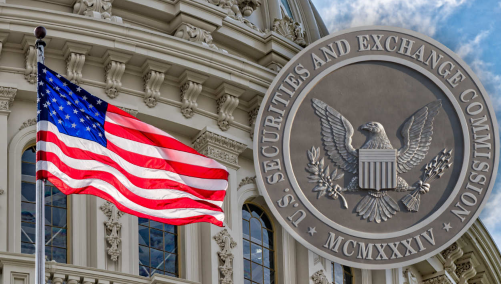 查看详情
查看详情美國SEC主席呼籲放松監管:將評估以半年報代替季報
當地時間周一,美國SEC主席Paul Atkins在為英國《金融時報》撰寫的評論文章中宣布,他將快速推進由特朗普總統提出的放寬財報披露頻率的建議。Atkins強調,“政府應提供保護投資者所需的最小有效劑量的監管,同時允許企業蓬勃發展。” 除了財報規則,Atkins領導下的SEC此前已在加密貨幣領域采取了更為友好的立場,並叫停了此前備受關註的氣候風險披露規則的辯護工作,體現了其系統性的監管松綁思路。 作為其監管放松議程的關鍵一步,Atkins正快速推進一項允許上市公司自行選擇以半年度為周期披露財務報告的提案。 Atkins指出,這一想法並非首創。他提到,美國直到1970年才開始實行季度報告制度,並且現行監管體系已為部分公司提供了這種靈活性。 他強調,“給予公司選擇半年報的權利,並非是對透明度的倒退”,而是為了重新聚焦於市場驅動的披露實踐,使之更有利於公司及其投資者的利益。 Atkins在文中明確表示,他正致力於將SEC帶回其核心使命,扭轉他所認為的前幾年的“使命偏離”。 而近年來,SEC已偏離了國會90多年前為其設定的明確使命,以及維持資本市場信心的判例和可預測性。 他在文章中寫道: 批評前任議程與歐洲監管規則 他將矛頭指向其前任Gary Gensler在拜登政府期間推行的激進監管和執法立場,並已采取實際行動推翻其核心議程,例如SEC今年投票決定,停止為一項要求公司披露氣候風險的規則進行法庭辯護。 他認為,這些規定推動了一種“雙重重要性”方法,要求披露“可能具有社會意義但通常不具有財務重要性”的事項,這是由“政治潮流或扭曲的目標”所驅動。 “這些指令可能會將成本強加給美國的投資者和客戶,卻對引導資本決策的信息幾乎沒有助益。” 盡管Atkins為放松財報披露要求提供了充分的理論依據,但此舉並未獲得一致認可。據媒體報道,投資者權益倡導團體已對此表示擔憂。 他們擔心,信息披露的減少將對依賴公開信息做出決策的散戶投資者構成傷害,並可能削弱作為美國資本市場基石的高效性。這一爭議點預計將成為該提案未來推進過程中的主要辯論焦點。 市場有風險,投資需謹慎。本文不構成個人投資建議,也未考慮到個別用戶特殊的投資目標、財務狀況或需要。用戶應考慮本文中的任何意見、觀點或結論是否符合其特定狀況。據此投資,責任自負。
2025-09-29

